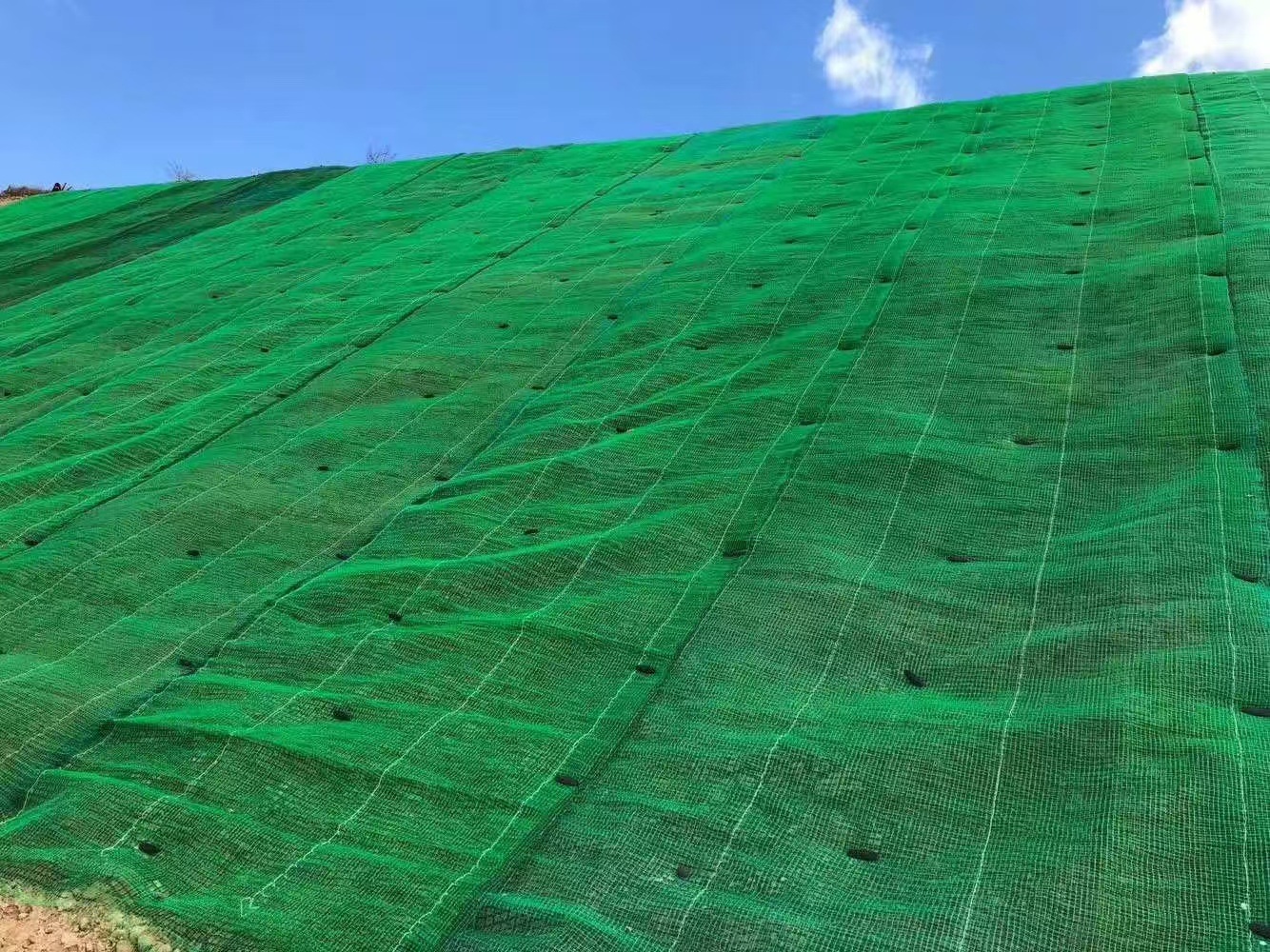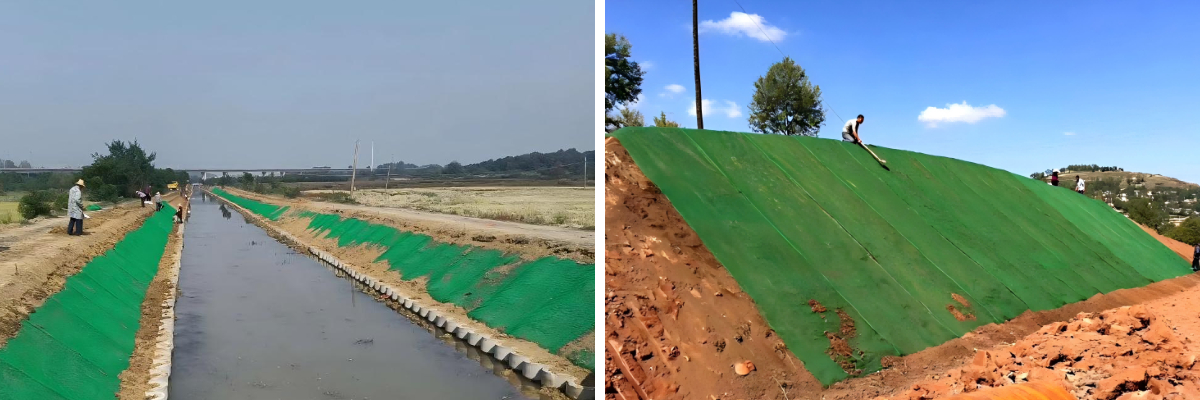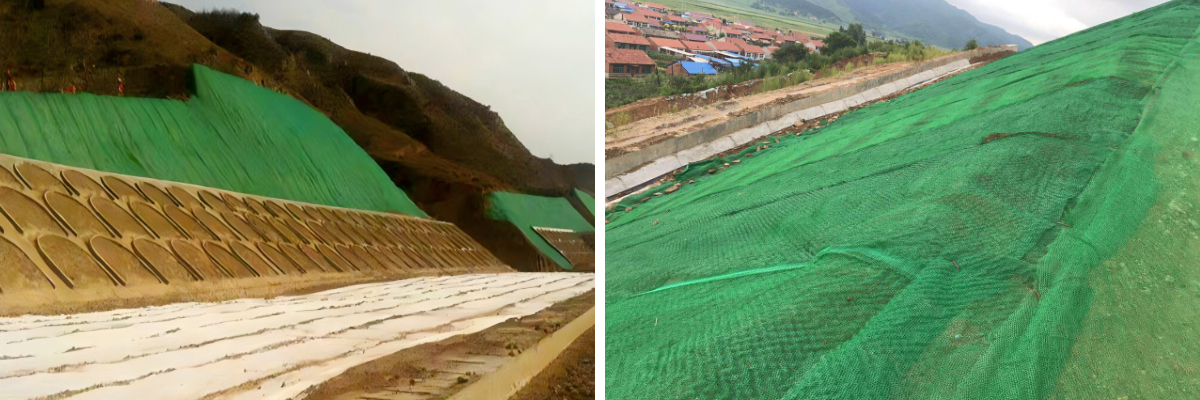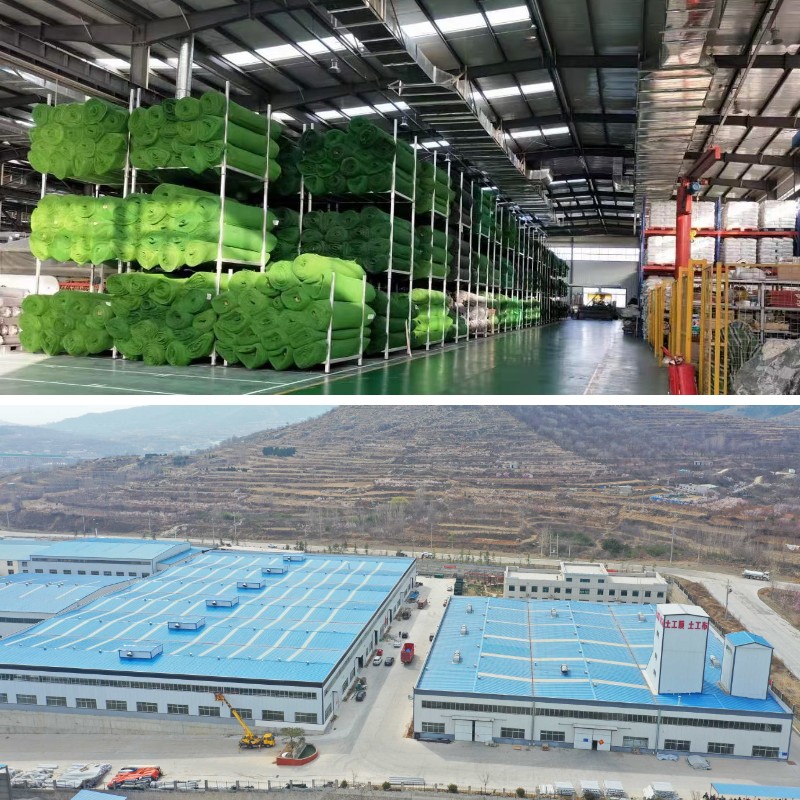3D Geomat: A Key Technology In Modern Ecological Engineering
In the face of severe challenges such as climate change, land degradation, and ecosystem destruction worldwide, 3D geomat technology, as an innovative ecological engineering solution, is receiving increasing attention and application worldwide. This technology combines principles of engineering and ecology, providing efficient and reliable solutions for slope stability, soil and water conservation, and ecological restoration. This article will comprehensively explore the technical characteristics, application fields, environmental benefits, and future development trends of 3D geomats, providing readers with a comprehensive and in-depth understanding of this ecological engineering technology.
3D geomat is a three-dimensional mesh material made of polymer materials (usually polyethylene or polypropylene), specifically designed for vegetation growth and soil fixation. Unlike traditional two-dimensional geonets, three-dimensional vegetation nets have a unique three-dimensional structure, usually composed of multiple layers of flat nets connected by vertical ribs, forming a network system with a high spatial structure.
This three-dimensional structure creates an ideal microenvironment that can effectively disperse rainwater erosion energy, prevent surface soil loss, provide growth space for plant roots, promote rapid vegetation formation, and protect slopes from erosion. The mesh size, height, and structural density of the 3D geomat can be adjusted according to different engineering requirements to adapt to various terrain conditions and vegetation types.
Technical characteristics of 3D geomat
1. Unique three-dimensional structural design
The most prominent feature of a 3D geomat is its three-dimensional spatial structure. This structure is usually composed of 1-5 layers of flat mesh connected by vertical ribs, forming three-dimensional spaces with heights ranging from 10mm to 30mm. This design creates the following advantages:Increasing surface roughness, reducing water flow velocity, providing a larger soil contact area, and creating micro terrain changes are beneficial for seed interception and germination, providing three-dimensional growth space for plant roots
2. Excellent mechanical properties
A high-quality 3D geomat has the following mechanical properties:High tensile strength, moderate elongation, strong UV resistance, acid and alkali corrosion resistance, suitable for various soil environments
3. Ecological compatibility
Modern 3D geomatwork design fully considers ecological factors: the material is usually environmentally friendly polymer, which will not cause pollution to soil and plants, with a black or green appearance that coordinates with the natural environment. The mesh size is moderate, ensuring structural stability without hindering plant growth. Over time, as vegetation forms, the network is gradually covered and eventually integrated into the natural ecosystem
4. Construction convenience
The design of the 3D geomatwork system considers the convenience of engineering implementation: light weight (usually 200-500g/m ²), easy transportation, rollable packaging, simple on-site laying, can be constructed by mechanical or manual methods, and can be flexibly cut and spliced according to the terrain
In highway construction,geomat for slope protection is usually used for the protection and greening of highway slopes, restoring natural vegetation along the route, beautifying the environment, while ensuring the stability of highway slopes and improving driving safety. In railway slope protection, measures are taken to prevent soil erosion and slope collapse along the railway line, ensuring the safe and stable operation of the railway. In the slope protection project on both sides of the river, the riverbank is protected from water erosion, the stability of the river is maintained, the growth of riverbank vegetation is promoted, and the ecological environment of the river is improved. By covering a 3D geomat and planting suitable plants, the restoration of vegetation on mine slopes can be accelerated, soil erosion can be reduced, and the ecological landscape of mines can be improved, playing an important role in the ecological restoration after mining.
The correct construction method for 3D geomat is the key to ensuring the effectiveness of the 3D geomat project. The typical construction process includes:
1. Slope preparation
Remove debris such as floating stones and tree roots from the slope surface
Fill in potholes to ensure a smooth slope surface
For loose slopes, compact them appropriately
The slope generally does not exceed 1:1 (45 °)
2. Laying a 3D geomat
Lay from the top of the slope downwards, with the net roll perpendicular to the slope surface
The overlapping width of adjacent mesh sheets shall not be less than 10cm
Buried in fixed trenches at the top and foot of the slope respectively
Fix with U-shaped nails or wooden stakes, with a spacing of 0.5-1m
3. Backfilling planting soil
Choose fertile topsoil or improved soil
The thickness of the backfill should exceed the height of the net by 2-5cm
Uniform manual or mechanical paving
Prevent large soil and rock from damaging the mesh material
4. Vegetation establishment
Sowing: Choose grass irrigation seeds that are suitable for the local climate
Spray broadcasting: mechanized operation, high efficiency
Planting: seedlings or nutrient bowl seedlings
Cover: non-woven fabric or straw for moisture retention
5. Maintenance management
Regular watering in the initial stage
Timely replanting and replanting
Prevention and control of pests and diseases
Avoid human destruction
Environmental benefits of 3D geomat
1. Soil and water conservation function
Reduce soil erosion by over 90%
Reduce surface runoff velocity by 30% -50%
Increase rainwater infiltration and supplement groundwater
Prevent gully erosion and collapse from occurring
2. Ecological restoration value
Quickly restore vegetation coverage
Increase biodiversity
Improve local microclimate
Rebuilding ecosystem functionality
3. Landscape beautification effect
Create a natural green landscape
Harmony and unity with the surrounding environment
Seasonal color variation
Enhance the regional landscape value
4. Carbon sink function
Promote plant growth and fix atmospheric CO ₂
Reduce carbon emissions caused by soil erosion
In the long run, forming a stable ecosystem carbon pool
The 3D geomat technology represents the development direction of modern ecological engineering. It cleverly combines engineering protection with ecological restoration, providing effective tools for solving environmental problems such as land degradation and ecosystem destruction faced globally. With the development of materials science, ecology, and engineering technology, 3D geomat technology will continue to innovate and improve, playing an important role in a wider range of fields.
In the future, 3D geomatwork technology will become more intelligent, ecological, and systematic, becoming one of the core technologies for green infrastructure construction. To realize this potential, it requires joint efforts from all sectors of industry, academia, and research, including strengthening basic research, improving standard systems, cultivating professional talents, and promoting successful experiences.
In the context of promoting ecological civilization construction globally, 3D geomat technology will undoubtedly make important contributions to building a modern harmonious coexistence between humans and nature, and become an indispensable technical support in sustainable development strategies.
Contact Us
Company Name: Shandong Chuangwei New Materials Co., LTD
Contact Person :Jaden Sylvan
Contact Number :+86 19305485668
WhatsApp:+86 19305485668
Enterprise Email: cggeosynthetics@gmail.com
Enterprise Address: Entrepreneurship Park, Dayue District, Tai 'an City,
Shandong Province









